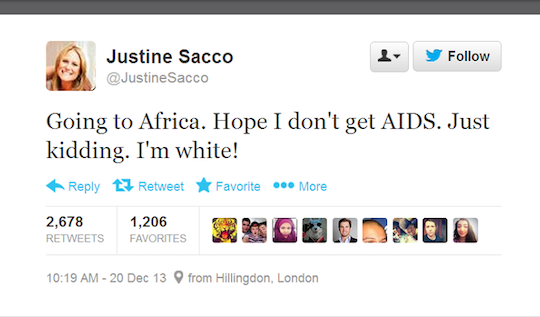You should follow Willy Staley on Twitter, not just because he is responsible for the best thing that happened to my career in 2014, but also because he has coined the phrase “digital Manichaeism.” He was referring, in part, to this amazing story about Justine Sacco in the New York Times. Flying to South Africa to visit family for the holidays, she tweeted the above ill-considered joke to her 170 followers before she got on the plane. By the time she landed, she had been fired from her job and was the number-one trending topic on Twitter. Sacco became the focus of social media’s robust shaming culture, and it blew up her life.
Tag Archives: aids
What the Tea Party means: Christine O’Donnell
Partly because it’s the most vital movement in contemporary politics and partly because they’re hilarious, we’ve spent over a year now trying to figure out what the Tea Party means. While several of the philosophical questions—and even some of the ontological ones—remain unanswered, Tuesday made one practical outcome clear. Christine O’Donnell has defeated heavily-favored Delaware legislator Michael Castle in the Republican senate primary, thanks to the enthusiastic backing of the Tea Party. Where Castle polled favorably against likely Democratic opponents in the general, O’Donnell does not. It might be because she’s crazy. “A lot of people said we can’t win the general election; yes we can!” she told the Times. “It will be hard work, but we can win if those same people who fought against me work just as hard for me.” Two things: 1) Agreed that Christine O’Donnell will win the election if the people who don’t like her start liking her and 2) now she owes Barack Obama a nickel.


